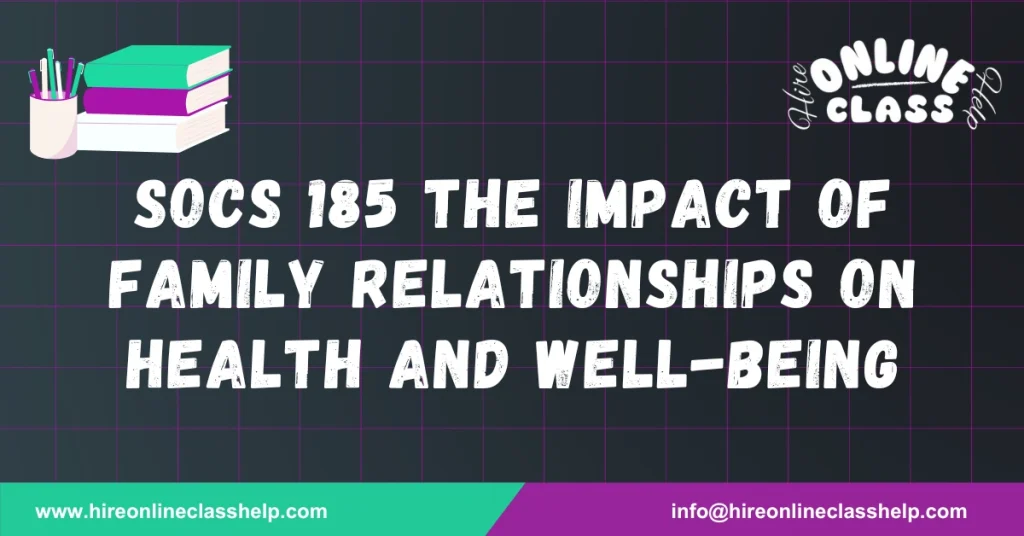






Name
Chamberlain University
SOCS-185 Culture & Society
Prof. Name
Date
Family plays a pivotal role in influencing overall health and well-being. As Kendall (2018) suggests, health is not merely defined by the absence of illness, but encompasses complete physical, mental, and social well-being. This paper examines the role family dynamics play in shaping health outcomes, highlighting the significance of cultivating healthy relationships within the family structure.
Unhealthy family environments, such as those characterized by violence or persistent conflict, can severely harm an individual’s well-being. Exposure to trauma in such settings can have long-lasting psychological and physical consequences. In contrast, a healthy family atmosphere provides nurturing and support, which fosters a sense of happiness and fulfillment. While it is common for families to face challenges, allowing negative experiences to persist can create a toxic environment, which adversely affects individuals’ health.
As noted by Health Line (2017), families learn, bond, and interact through various experiences such as love, conflict, and arguments. While disagreements are inevitable, the ability to manage them constructively is crucial in maintaining a healthy family dynamic. When unresolved conflicts or negative emotions are allowed to accumulate, they can lead to chronic stress, reduced self-esteem, and a lack of emotional support, all of which have significant implications for physical and mental health. These issues can increase the risk of conditions like depression and anxiety.
In contrast, families that maintain healthy relationships offer numerous benefits that promote well-being. A strong family unit acts as a buffer against stress, enabling individuals to cope with life’s challenges more effectively. The support, understanding, and security provided by healthy family relationships foster emotional resilience and a sense of belonging. In addition, emotional, physical, and financial support from family members helps individuals to manage difficulties with greater confidence and well-being.
Fostering a healthy family environment requires effort from all family members. Key components of healthy relationships include open communication, active listening, and empathy. Addressing conflicts and concerns openly helps prevent long-term issues and damage. Participating in shared activities and spending quality time together strengthens family bonds and creates a positive and supportive atmosphere.
When family dynamics become strained or unhealthy, seeking external support can be essential. Family therapy and counseling offer a structured, safe space where families can address underlying issues, improve communication, and work towards rebuilding relationships. These professional interventions aid in healing and understanding, providing families with strategies to navigate challenges effectively.
Family relationships have a profound impact on both physical and mental health. Unhealthy family dynamics can lead to long-term physical and psychological consequences, while healthy family relationships foster a nurturing environment that promotes overall well-being. Prioritizing communication, conflict resolution, and emotional support within the family is essential for maintaining the health of all members. Through healthy family relationships, individuals can achieve improved mental health, greater resilience, and a sense of belonging, ultimately leading to a more fulfilling life.
Kendall, D. (2018). Sociology in our times: The essentials (11th ed.). Cengage Learning.
Health Line. (2017, December 28). 5 Ways to Reduce Stress at Home. Retrieved from https://www.healthline.com/health/stress-and-family